“Watching My Child Die — And Fighting to Bring Him Back”.2322
A Father’s Plea: Please Don’t Let My Little Boy Die
(The Story of Szymon Berliński’s Fight for Life)
A few weeks ago, my son was dying before our very eyes.
Those are words no father should ever have to say. But that was our reality.
Our little boy, Szymon — just two years old — lay in a hospital bed, his tiny body trembling, his skin pale, his breath shallow. I watched as life slowly began to slip away from him, powerless to stop it.
When I learned that my son had neuroblastoma — one of the deadliest childhood cancers — my world collapsed like a house of cards. Half of the children diagnosed with this disease never make it. My boy’s life had barely begun, and already, death was trying to steal him from us.
I am Szymon’s father. And I am begging for help — again — to keep my little boy alive.
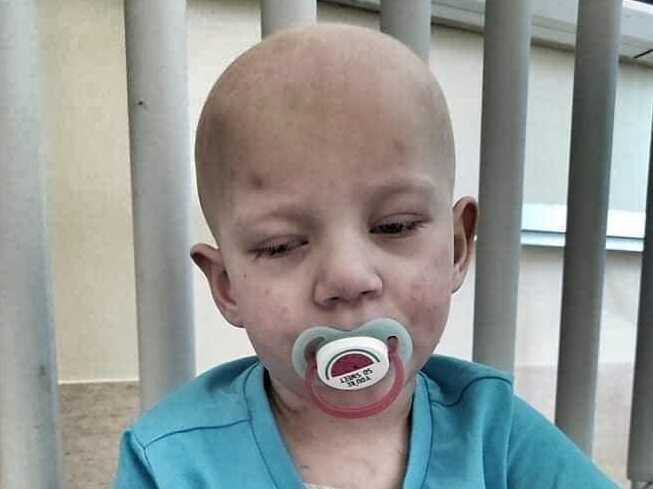
The Day Our World Fell Apart
It all started on May 16th.
That date is now burned into my memory — the day the doctors told us our son was dying.
Before that, Szymon was a happy, healthy child. He laughed constantly, loved to run, to play, to discover the world. He was full of light — our entire home revolved around his joy. But then something changed. He became weak. He stopped eating. His smile faded.
We took him to the hospital, terrified but hopeful that it was something simple. Instead, we were given the worst news any parent can hear.
“There’s a tumor in his brain,” the doctor said quietly.
The room went silent. I remember my wife clutching my arm, whispering, “No, no, no…” as the world around us disappeared. The next words hit even harder: the tumor in his brain was a metastasis. The original tumor — the source of all this evil — was deep inside his abdomen.
Our son had neuroblastoma — and it had already spread to his spine and bone marrow.
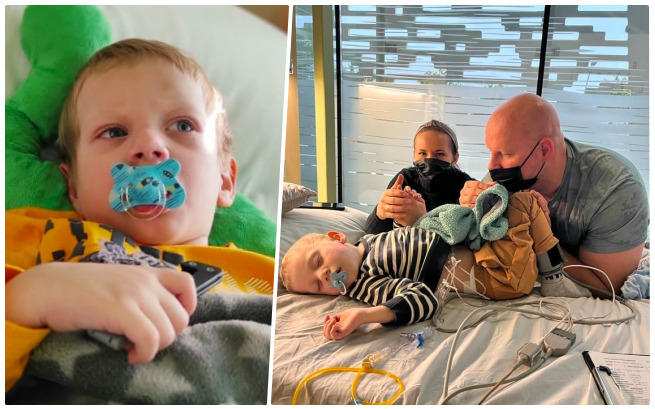
The Nightmare That Followed
Everything happened so fast.
Szymon was rushed into surgery to remove the tumor pressing on his brain. The doctors did everything they could — but when he woke up, our baby boy could no longer see. He had lost his sight.
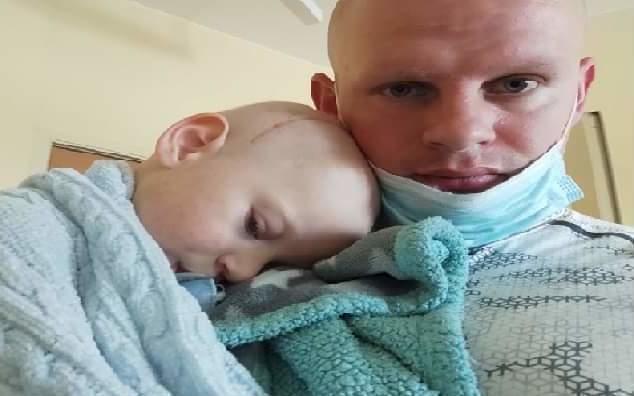
Then came the chemotherapy.
We watched as he grew thinner and weaker, refusing food, vomiting from exhaustion. The medicine didn’t seem to work. His little hands trembled as I held them, and I could feel the weight of his suffering in every breath he took.
He was fading away.
We were watching our son die — and there was nothing more terrifying than that.
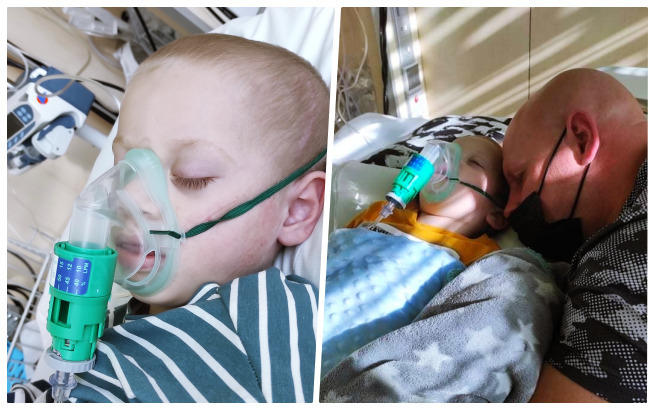
A Ray of Hope in Barcelona
When the doctors in Poland told us they could do no more, we refused to give up. We searched the world for hope — and we found it in Barcelona.
The doctors there specialize in neuroblastoma. When they saw how sick Szymon was, they agreed to admit him immediately. We flew there with trembling hands and hearts full of desperate hope.
You — the incredible people who believed in us — made that possible. Because of your donations, your compassion, and your prayers, we were able to take Szymon to Spain.
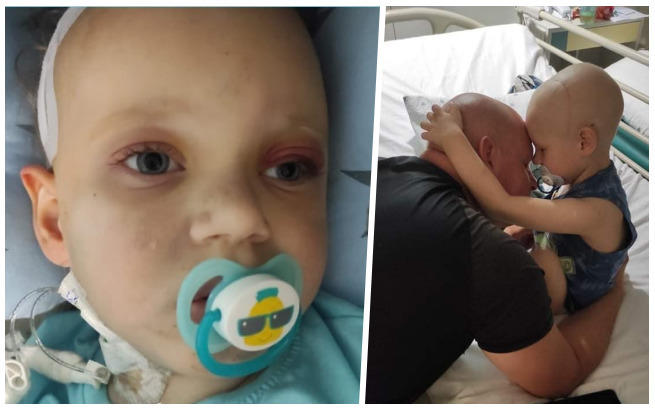
He underwent another grueling surgery, this time to remove the main tumor in his abdomen. The operation was long and dangerous — but by some miracle, the doctors managed to remove nearly 100% of the cancerous tissue.
After that, they implanted a port in his chest for future treatments. Slowly, painfully, Szymon began to regain strength. He started to eat again. For the first time in months, there was color in his cheeks.
Our hearts, for the first time in so long, felt something other than fear — they felt hope.
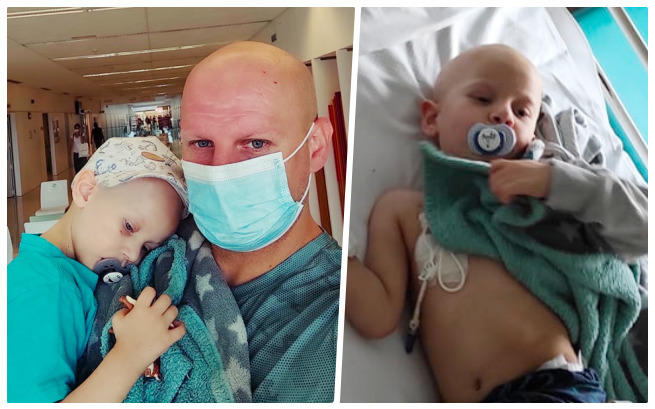
The Battle Is Not Over
But neuroblastoma is a cruel and deceitful enemy.
It often returns — stronger, more aggressive, more unforgiving than before. And that is what terrifies us most.
The doctors in Barcelona told us that once Szymon finishes his current treatment — five months of immunotherapy followed by one month of radiotherapy — he must receive a
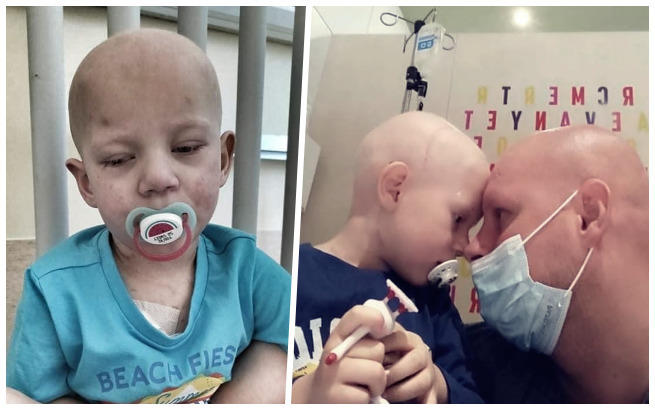
This vaccine can save his life. It trains his immune system to recognize and destroy cancer cells before they grow again. It is his best chance to live a long, healthy life.
But the cost is staggering — one million złotych.
We don’t have that kind of money. And we cannot afford to wait.
Every day counts. Every delay could mean losing the fragile ground we’ve gained.
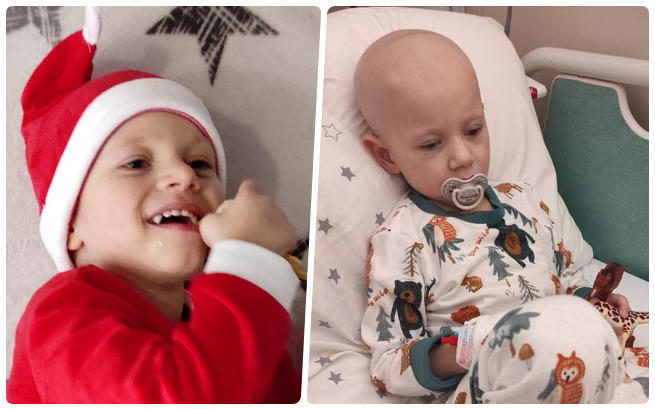
A Father’s Plea
As I sit here in the hospital, watching my little boy sleep, I can hear the steady rhythm of his heartbeat on the monitor — each beat a reminder that he’s still here, still fighting, still holding on.
And I know I would give anything to keep that heartbeat going.
I would give my own life if it meant my son could live.
But right now, all I can do is ask for your help — once more — to give him that chance.
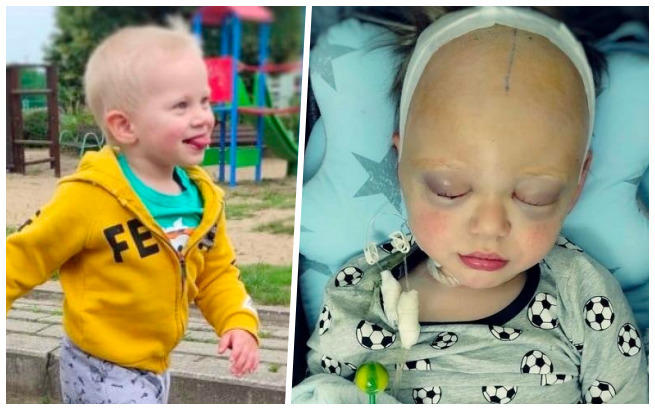
We are fighting for everything: for Szymon’s future, for his laughter, for his sight, for his life.
If his life ends, mine loses its meaning.
Please, don’t let that happen.
Please help us save our son.
He’s not even three years old. He hasn’t had time to live, to grow, to dream.
Don’t let cancer steal that from him.
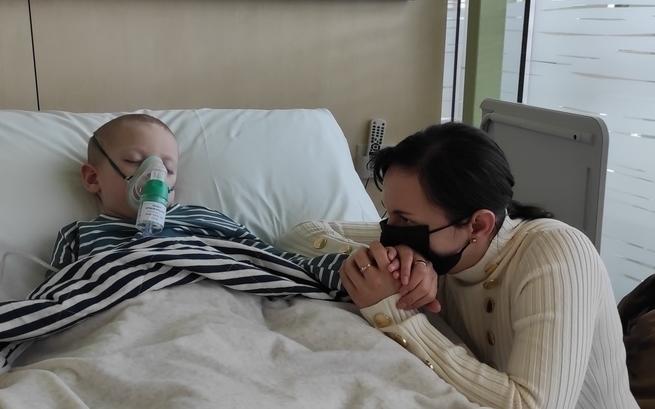
The Hope That Remains
We know the road ahead will be long. There will be more treatments, more pain, more sleepless nights. But there will also be hope — because of you.
To everyone who has already helped us, who has prayed for us, who has donated, shared, and believed — we are endlessly grateful. You are part of this fight now. You are the reason we still believe in miracles.
Szymon’s story is not over yet.
As long as there is breath in his body and love in our hearts, we will keep fighting.
For life.
For hope.
For our little boy. 💔
From One Breath Away to Walking Free: Dr. Beth’s Miracle.1876

Do you believe in miracles?
For most of us, the answer comes easily on Easter Sunday, when the miracle of the Resurrection takes center stage.
But this Easter in Gainesville, Florida, a different kind of miracle has unfolded.
It is the story of a woman who was not supposed to survive, of a family who refused to stop believing, and of a God who turned the impossible into reality.

Her name is Dr. Beth Duensing.
She works with the Mobile County Health Department in Alabama, and just a few months ago, her future looked impossibly bleak.
Last December, Beth was diagnosed with Pseudomonas Necrotizing Pneumonia, a devastating and aggressive lung infection that ravaged her body.
Her husband, Adam, watched in fear as doctors rushed her to UF Health Shands Hospital in Gainesville.
Beth was placed on an ECMO machine — a device that draws blood out of the body, infuses it with oxygen, and pumps it back in.
It was her only lifeline.
Doctors warned Adam that survival was unlikely.

To make the situation even more complex, Beth was pregnant.
On January 18th, while Beth clung to life, doctors delivered baby Whitman Ellis “Gator” Kuettel at only 27 weeks.
He weighed just 2 pounds, 2 ounces — smaller than a bag of sugar — fragile and utterly dependent on machines himself.
At that time, Adam could barely keep his head above water.
His wife lay in one hospital bed, hooked up to machines that kept her alive.
His newborn son lay in another unit, fighting his own battle for survival.
And Adam stood in the middle, praying for both.

For months, Beth’s condition swung between moments of faint hope and terrifying decline.
Adam remembers: “My wife almost died at least ten times. She was a breath away from dying.”
Doctors echoed the same, preparing him for the worst.
When she did respond, it was subtle.
“She can squeeze my hand and follow me with her eyes,” Adam told friends months ago.
Beyond that, she remained non-responsive, her body overwhelmed by infection and complications.
Every day felt like the brink of goodbye.
Every night, Adam prayed for just one more morning.

And then came the miracle.
Against all odds, after 105 days in the hospital, Dr. Beth walked out of Shands two days before Easter.
Not wheeled out.
Not carried out.
She walked.
The same woman who had been declared “one breath away from death” was now upright, stepping into sunlight, with her husband at her side.
At the same time, baby Whit was thriving too.
Now nearly three months old, he had grown from 2 pounds to over 5 pounds.
Though he remains in the NICU for now, his progress mirrors his mother’s resilience — fragile beginnings transformed into strength.

Adam could hardly put into words the enormity of what had happened.
In a message he shared with family and friends, his awe was palpable:
“The day we have prayed, pleaded, and hoped for has finally arrived. Beth has walked out of the hospital. It’s a day I always believed would come, but when I look back at the pictures and videos of how bad things truly were, I feel in a haze of confusion that this actually even happened.”
He continued:
“How did Beth go from being ‘one breath away from death,’ to walking out of this hospital? How did her body survive so many afflictions — each one deadly on its own — and yet she endured them all? Statistically, it shouldn’t be possible. The odds of this happening are as rare as winning the Powerball back-to-back. And yet, here she is.”

For Adam, there was only one explanation.
“God miraculously touched Beth’s body. God gave her the strength not to give up. So many things happened that, when added up, can only point to God, Jesus, and the Holy Spirit. They deserve all glory, honor, and praise for Beth walking out of that hospital after 105 days.”
Adam admitted he may never know exactly how all the pieces came together — whether it was faith, the millions of prayers lifted by strangers, divine destiny, or all of the above.
But he is certain of this: “God is not meek, and when you believe truly through the heart, anything is possible.”
That night, Adam said he would fall to his knees and give thanks for his family — for the miracle of Beth’s survival, for the gift of baby Whit, and for the prayers and support of countless people who carried them through.

The timing of Beth’s discharge feels almost poetic.
On Easter Sunday, Christians celebrate the miracle that changed the world forever.
This year, for Adam, Beth, and baby Whit, Easter will forever carry another meaning.
It is the holiday that came with their own resurrection story.
Beth was given little chance to live.
Her body endured infection after infection, crisis after crisis.
And yet she walked out alive.
Whit was born impossibly small and fragile.
And yet, he is growing, gaining weight, and holding on.
Together, they are proof that miracles still happen.

There will still be hurdles.
Beth’s recovery will take time, patience, and continued care.
Baby Whit will remain in the NICU until he is strong enough to come home.
The road ahead will not be easy.
But the Gator family has learned to live in miracles, not statistics.
They have seen firsthand how faith, prayer, and perseverance can defy even the darkest prognosis.


And so, this Easter, they celebrate.
Not with fanfare or extravagance, but with gratitude.
For Beth’s life.
For Whit’s progress.
For a God who carried them through the storm.
Beth is home.
Whit is growing.
Adam is smiling through tears.
And together, they are living their best Easter ever.






